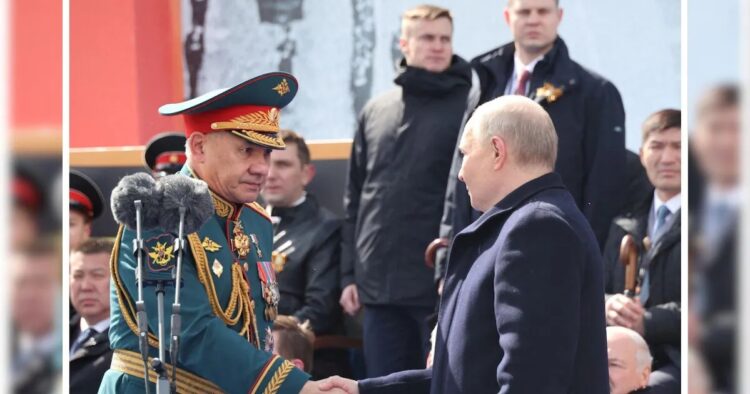Russian President Vladimir Putin has initiated a significant Cabinet shakeup, replacing Sergei Shoigu as defense minister with Andrei Belousov. Shoigu, who had served as defense minister since 2012, will now assume the role of secretary of Russia’s Security Council.
The move follows the resignation of the entire Russian Cabinet after Putin’s recent inauguration, with most members expected to retain their positions. However, Shoigu’s fate is uncertain.
The decision to appoint Belousov as defense minister is subject to approval by Russia’s upper house in parliament, the Federation Council. Belousov, a former first deputy prime minister, is viewed as a civilian candidate, reflecting Putin’s aim to infuse innovation and modernization into the defense ministry while ensuring fiscal responsibility.

Shoigu’s deputy, Timur Ivanov, was recently arrested on bribery charges, leading to speculation about Shoigu’s potential dismissal. However, Kremlin spokesman Dmitry Peskov emphasized that the reshuffle aims to enhance the ministry’s efficiency and economic integration, rather than signaling a shift in military strategy.
Tatiana Stanovaya, a senior fellow at the Carnegie Russia Eurasia Center, suggests that Shoigu’s new role in the Security Council underscores Putin’s retention of key figures within his close circle.
This move aligns with previous appointments of influential figures, such as former President Dmitry Medvedev, to the Security Council.
Shoigu’s tenure as defense minister was marked by significant military operations, including Russia’s intervention in Ukraine. Despite initial expectations of a swift victory, the conflict in Ukraine proved more challenging than anticipated, with Ukrainian forces mounting strong resistance against Russian advances.
Before serving as defense minister, Shoigu headed the Ministry of Emergency Situations, demonstrating his extensive experience in disaster response and organizational leadership.
Although his new role may not wield the same authority as his predecessor, Nikolai Patrushev, it still carries considerable influence within Russia’s security apparatus.
The ongoing conflict in Ukraine’s northeast intensifies, with reports of civilian casualties and mass displacement. Russian forces continue their offensive, targeting towns and villages along the border, while Ukrainian troops struggle to defend against overwhelming firepower.
The situation remains volatile, with analysts warning of further escalation and humanitarian crisis.
Despite international efforts to provide assistance to Ukraine, including promised Western supplies, Russian forces maintain momentum, capturing strategic territories and exploiting weaknesses in Ukrainian defenses.
The conflict threatens to escalate into a protracted standoff, with implications for regional stability and global security.

















Comments